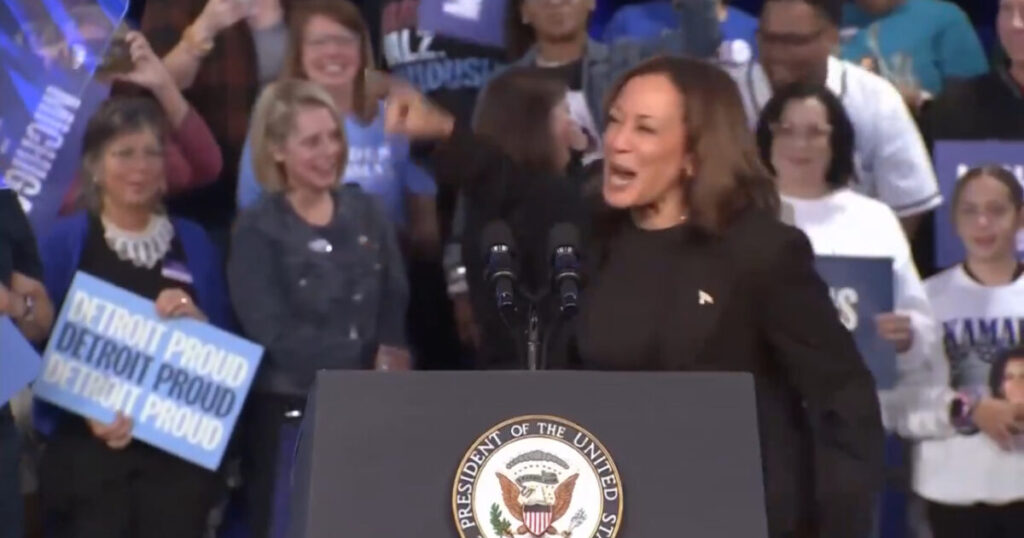On October 18, 2024, Vice President Kamala Harris delivered a speech in Detroit, Michigan, which drew considerable attention due to her animated demeanor. Harris’s performance has sparked debates about her fitness for leadership, as observers noted her loud outbursts and erratic movements on stage. In a particularly striking moment, she encouraged the audience to “shout your own name for a minute,” emphasizing that the focus should be on them and their families. This enthusiastic encouragement, however, was overshadowed by her unconventional stage presence, which led some to question whether her behavior was influenced by alcohol.
The incident did not go unnoticed on social media, where the Trump campaign’s War Room account highlighted Harris’s performance and speculated about her sobriety, with one post provocatively questioning, “Is she drunk?” This commentary reflects a broader narrative circulated by her critics, who have long questioned her composure and ability to handle the responsibilities of her office. In this charged political climate, such moments are weaponized and taken seriously, contributing to an ongoing discourse about Harris’s qualifications and public persona.
Arizona State Representative Wendy Rogers, known for her sharp Twitter commentary, weighed in on the situation, using a shifty eyes emoji to insinuate that Harris may have been under the influence while on stage. These reactions are part of a wider trend of skepticism towards Harris, as unfounded rumors about her alcohol consumption have resurfaced, portraying her as someone struggling with a purported “drinking problem.” This narrative has been emboldened by her past public speaking events that critics argue exhibit erratic behavior, casting doubt on her capacity to serve as the Vice President.
Adding to the scrutiny, even comedic portrayals have attempted to reflect Harris’s perceived flaws. A recent skit on Saturday Night Live featured actress Maya Rudolph mimicking Harris while drinking wine, expressing frustration over a hypothetical political situation. This satirical representation not only underscores the criticism Harris faces in serious political dialogue but also illustrates how her actions are subject to ridicule in popular culture. Such portrayals indicate that her public image is vulnerable, potentially affecting her standing among voters and impacting her future political aspirations.
In response to these critical narratives, it is worth considering the objective realities of Harris’s political career. While her opponents mobilize her theatrical moments against her, supporters argue that her passion and approach are part of a broader strategy to engage with voters. For many, her lively communication style reflects not only enthusiasm for her causes but also a genuine connection to the constituencies she serves. This disjunction between perception and intention is a common theme in political discourse, suggesting that performance and messaging can significantly alter public reception.
Ultimately, the events in Detroit highlight the complexities of political rhetoric, spectator perception, and media interpretation in today’s climate. Harris’s stage presence may have raised eyebrows, leading to serious questions about her demeanor, but it is crucial to dissect these reactions in the context of partisan bias and electoral strategy. As the 2024 election cycle continues, such moments will likely be scrutinized and debated, shaping the narratives around candidates in profound ways, thereby influencing voter sentiment and, ultimately, the outcome of the election.

